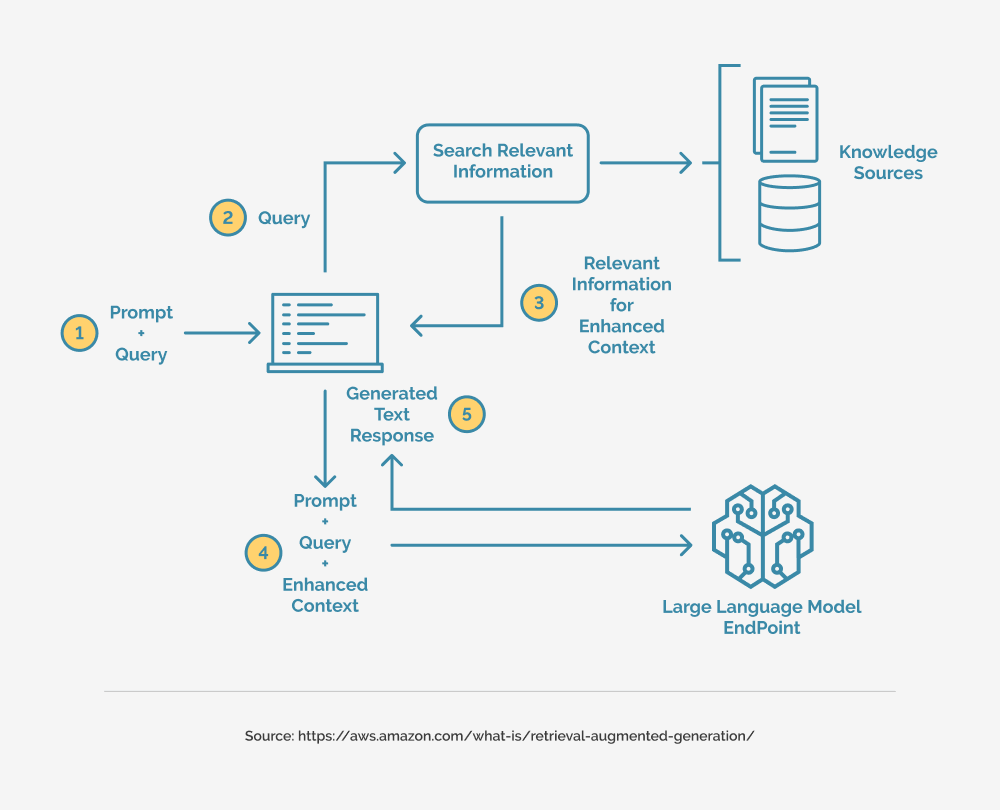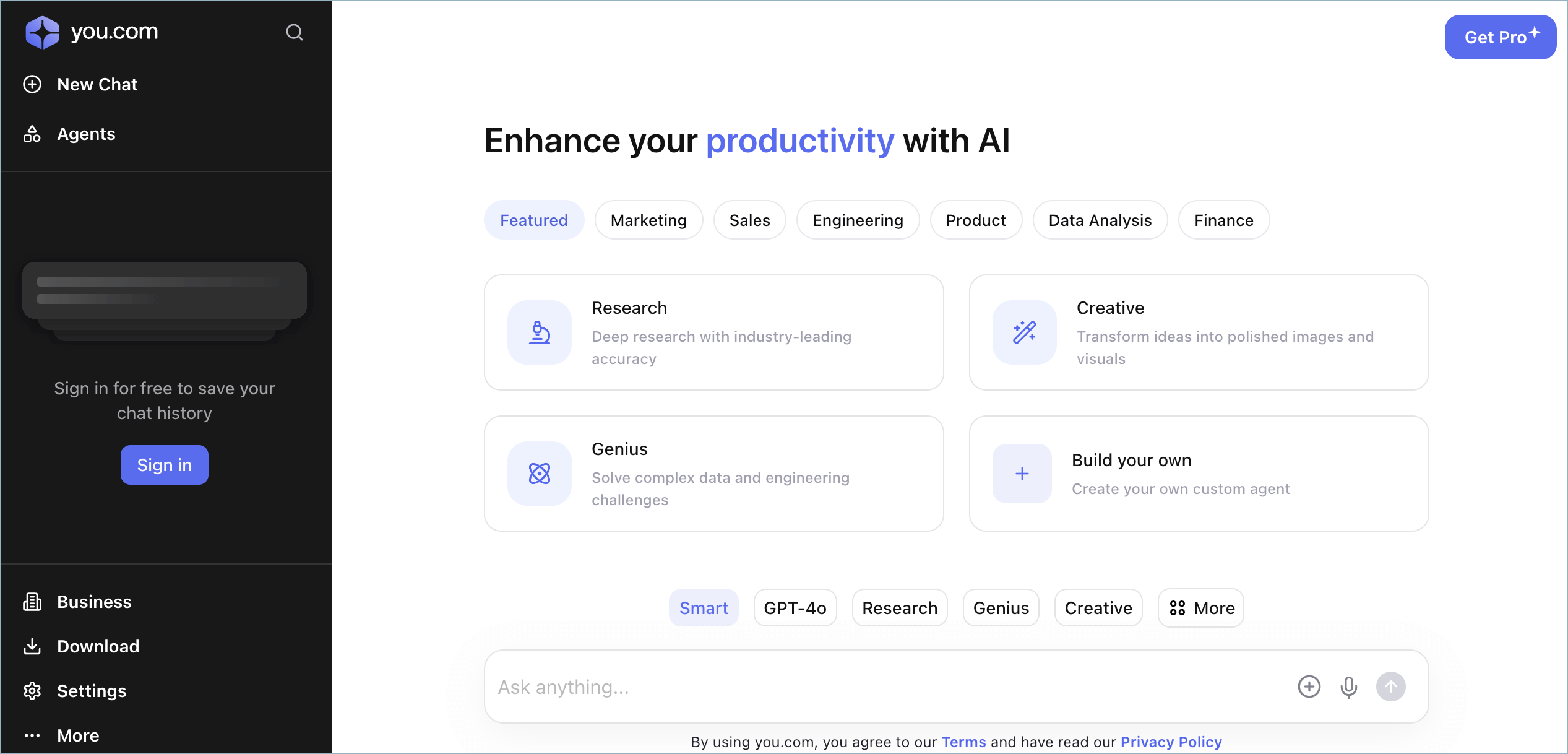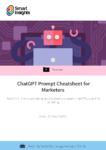Using GenAI RAG techniques to support marketing strategy development
Since I’ve been involved in digital marketing from when we used to call it Internet Marketing, I’ve always been keen to help businesses use a more strategic approach. I believe it’s essential since digital marketing is complex, and it’s vital that it’s aligned with marketing strategy and not just treated as tactical, as it often is. So, in my consulting, training, books and on Smart Insights, how to use a strategic approach to digital marketing has always been a big part of my recommendations.
The recent growth in adoption of GenAI has been fascinating for me, since although it can be used in a tactical way to support copywriting for digital channels, it has also been enthusiastically adopted for marketing and digital marketing strategy and planning as our research on digital marketing trends shows.
46% reported that they had already used AI for creating plans with 9% planning to use it in future.
The benefits of using AI in Strategy Development are clear:
- Time-saving – Reduces effort on mundane tasks, allowing focus on value-adding strategy activities.
- Independent expert analysis – AI reviews strategies, identifies and suggests improvements based on its training corpus of strategy best practices
In this post, I will explain opportunities for you to use GenAI to support marketing strategy and planning, focusing on digital marketing. I will structure suggestions based on our simple RACE digital marketing strategy development and implementation process :
Opportunity > Strategy > Action
i.e. we will show how AI can assist in:
- Situation Analysis - Where AI can summarize market trends, company performance, and identifies key issues.
- Strategy Formulation - AI helps in creating forecasts and selecting strategic options.
- Strategy Implementation - AI can review progress against objectives.
For applying GenAI to support each part of OSA, RAG is a key concept to grasp since your strategies will be most effective when you can apply RAG to use data to customize your strategy.
With the evolution of LLM platforms to accept more inputs, described in our AI marketing trends article, the value of using GenAI RAG techniques has risen to prominence. It's a key concept to consider if you're using GenAI to support digital marketing strategy and planning.
RAG stands for Retrieval-Augmented Generation, meaning that you supplement the generic training the AI has received with company and market specific insight, allowing businesses to customize AI responses using their own data. The RAG process is shown below:

The process is:
- Query Understanding – AI analyzes input topics.
- Retrieval – Searches user specified data sources (internal files or external websites).
- Context Integration – Combines retrieved data with the prompt.
- Generation – Produces a response using both trained knowledge and retrieved content.
- Iterative Refinement – Additional cycles refine the answer.
When the ChatGPT launch first brought GenAI to prominence, the facilities for RAG were limited, but these are now standard features of all the best-known GenAI platforms such as ChatGPT, Gemini and Claude. We’ll explain how suitable prompts can be used for each part of OSA below.
Note, though, that RAG has a key limitation at the moment, there are usually limited facilities to 'close the loop' to feed back selected outputs from the LLM back into the knowledge base. This has to be achieved manually. We can expect this use of RAG to improve, and we are seeing some specialist AI-based strategy and planning tools such as Quantive evolve which do a better a job at closing the loop.
You can read more about Quantive's take in their article on How to Use AI for Strategy and Strategic Management: Enhancing Decision-Making.
Another interesting LLM platform that supports RAG is You.com - they have an interesting model since their platform supports customization through RAG so businesses so they can create their own agents, but selecting from different LLMs for different purposes.

AI Governance for Strategy Development
Given that we’re supplementing the AI with internal knowledge, we need to make sure the governance is in place to avoid this knowledge being released outside the company. As I have stressed in other Smart Insights articles, since applying AI successfully to the future of a business is 'mission-critical', it’s essential to have an AI governance plan or playbook so that everyone in the marketing team understand the benefits or using GenAI for marketing and how it shouldn’t be used. Waverley defined 4 pillars for managing AI strategy: that should be considered when managing AI. In summary, these risks that should be mitigated before using AI are:
- Data Governance – Ensuring data quality, integrity, and security.
- Technology & Infrastructure – Supporting scalable AI implementations.
- Talent Development – Investing in AI expertise.
- Ethics & Compliance – Adhering to regulations on data privacy, security, and ethical AI use.
AI Applications in Strategy Development
AI in Opportunity Review
AI supports situation analysis by distilling insights from various sources, covering techniques including: Marketplace trends (micro-environment), PESTLE analysis (macro-environment), Customer analysis (preferences and profiles) and Competitor analysis (reviews based on online presence)
Recommended AI Tools for situation review are ChatGPT and Gemini where you can upload PDFs or Google Drive and summarize multiple documents. Google NotebookLM is particularly adept for strategy since it can summarize multiple sources efficiently although it is less good at producing tabular output compared to the others.
Examples of prompts you can use for Opportunity are available in our recently updated free ChatGPT for marketing Prompt Cheatsheet available with Free membership.
Challenges to consider at this Opportunity stage include Privacy Protection – Ensuring uploaded sources are secure; Data Accuracy – Checking currency of information retrieve by the AI and AI Hallucination – Validating AI-generated numeric data. Remember that more recent LLMs available with premium services have much lower hallucination rates.
AI in Strategy Development
AI can assist in selecting and reviewing strategic initiatives. As in this Harvard Business Review article, How CEOs Are Using Gen AI for Strategic Planning, AIs can act as a ‘trusted consultant’ by prompting businesses to consider key strategic questions such as: What strategic challenges will we face in the future? How will future demand for our services change? What important trends are missing from our current strategy?
Future AI Strategy tools will enable Scenario Planning – Rapidly generating future scenarios and Objective Decision-Making – Reducing bias in strategy formulation.
AI in Strategy Implementation
At this stage, AI can aid strategy execution by: Monitoring Key Performance Indicators (KPIs). - Adaptive Resource Allocation; Predictive Analytics and Automated Task Management.
At this stage, AI should highlight performance issues using the RACE framework. - AI analysis should be integrated with data from tools like Google Analytics and Google Search Console.
Recommended Use Cases and ChatGPT Prompts for planning
Outline prompts that could be relevant at this stage are listed below. Note that more detailed prompts are needed for better results - see more detailed prompt examples presented in our Prompt cheatsheet.
SWOT Analysis
“Perform a SWOT analysis for [Business Name] using the latest market insights.”
TOWS Analysis
“Develop a TOWS Matrix for [Business Name] to align strengths, weaknesses, opportunities, and threats into actionable strategies.”
SMART Objective Setting
“Generate SMART marketing objectives using the RACE framework.”
Competitor Analysis
“Compare [Business Name] against competitors based on their online presence.”
PESTLE Analysis
“Analyze key macroeconomic factors affecting [Business Name].”
Strategy Success Factors
“Rank and explain the top 5 factors critical for digital marketing success in [Industry].”
Persona Creation
“Develop a detailed persona including demographics, psychographics, and buyer journey stages.”
Strategy Roadmap
“Create a timeline for implementing key digital marketing initiatives over the next 8 quarters.”
Content Strategy
“Develop a content strategy matrix based on awareness, consideration, and decision-making stages.”
Conclusion
We have seen that AI is revolutionizing digital marketing strategy by streamlining strategy development processes, providing independent expert analysis and automating data gathering and performance tracking. Although some incredible outputs are possible with the prompts available in our ChatGPT for Marketing Cheatsheet, they use a model of a single prompt. In future, the move to the agentic AI era described in our article on AI in marketing trends will lead to agents having the ability to chain together multiple prompts and overcome the limitation with RAG where the information retrieved can’t be readily updated in a closed loop.
For structured learning on how marketers can best use ChatGPT and other LLMs our relevant courses for premium members are:

Starter Membership

AI for Marketing Learning Path
Part of the Sector technology innovation Toolkit
Learn how to develop an AI marketing strategy and practical tips on using ChatGPT.
Learn MoreCore Module

Customizing ChatGPT for your marketing workflows with GPTs
Part of the Sector technology innovation Toolkit
This module is aimed at making you a smarter marketer who understands more advanced AI customization approaches such as creating GPTs.
Learn More










